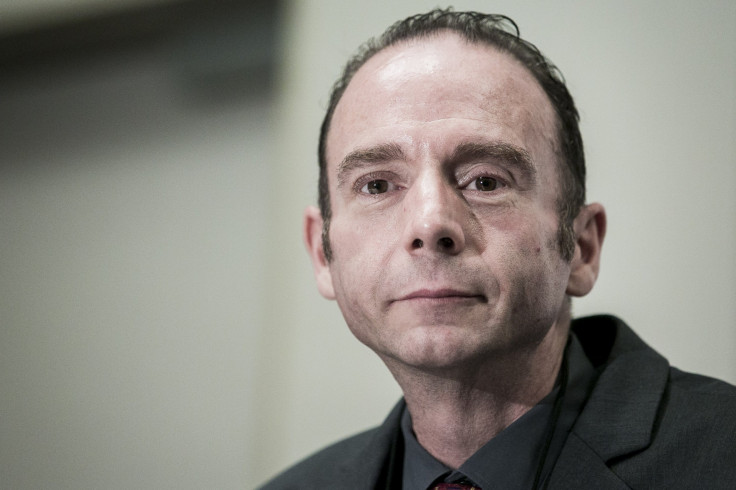Who Is Timothy Ray Brown? Meet The First Person To Be Cured Of HIV

More than a decade after scientists announced that Timothy Ray Brown, a man who had been living with the HIV virus, had become the first man to officially be cured of the disease, a second patient has been said to be in remission from the virus, according to a study published in the scientific journal "Nature."
Known as "The London Patient" to protect his anonymity, the U.K. resident, who had been living with the disease for years, has now been in remission from HIV for 18 months.
Circumstances surrounding the London patient's recovery are highly unique. After being diagnosed with Hodgkin's lymphoma in 2016 — he was first diagnosed with HIV in 2003 and began antiretroviral therapy in 2012 — the man received stem cell transplants from donors who carried CCR5-delta 32, a rare genetic mutation that makes those with the gene resistant to HIV.
"By achieving remission in a second patient using a similar approach, we have shown that the Berlin Patient was not an anomaly and that it really was the treatment approaches that eliminated HIV in these two people," said Ravindra Gupta, a professor in University College London's Division of Infection and Immunity and the lead author of the study.
According to 2017 data compiled by the United Nations Programme on HIV/AIDS, approximately 36.9 million people worldwide live with the virus. Around 1 million people now die of causes related to the disease per year.
The London patient bears a number of similarities to Timothy Ray Brown, the only other person known to be in remission from HIV.
Brown was born in 1953 in Seattle and then later moved to San Francisco. He had been living with HIV since 1995 before becoming known as "The Berlin Patient" in February 2007 after being diagnosed with acute myeloid leukemia, a type of cancer that affects the blood and bone marrow.
After undergoing two bone marrow transplants, both from donors who carried the HIV-resistant gene and were intentionally selected because of it, Brown was considered effectively cured of the virus.
Although trace amounts of HIV were found in Brown's blood tests a few years after the transplants, according to his doctors he is still considered cured due to the fact that the HIV load was by all accounts virtually undetectable.
Findings on Brown were first presented in 2008 at the Conference on Retroviruses and Opportunistic Infections. Like "The London Patient," Brown was known as "The Berlin Patient" to protect his identity. The alias used was in honor of both the city where he was treated and where he lived.
Brown decided to reveal himself to the world in 2010, stating that he "didn’t want to be the only person cured," and that he wanted to do what he "could to make [a cure] possible" — the first step being the release of his name and image to the public.
Brown has said the process was far from easy. He suffered neurological damage, an inability to walk and incontinence.
"I wouldn't wish what I went through on my worst enemy," said Brown about his experience with his treatment at a media briefing at the 2012 International AIDS Conference in Washington. "There were times I wished I would die."
Brown remains HIV free.
While the remission of the London patient might prove promising, scientists say that a lot more work needs to be done to attain a widespread, accessible and general cure.
"If we can understand better why the procedure works in some patients and not others, we will be closer to our ultimate goal of curing HIV," said Graham Cooke, a professor of infectious diseases at Imperial College London, in a statement made to the Science Media Centre.
"At the moment the procedure still carries too much risk to be used in patients who are otherwise well, as daily tablet treatment for HIV is able to usually able to maintain patient's long-term health," added Cooke, who was not involved with the London patient's case study.
Brown expressed a desire to meet with the London patient in order to encourage him to go public.
"[Going pubic has] been very useful for science and for giving hope to HIV-positive people, to people living with HIV," Brown told the Associated Press on Monday.
© Copyright IBTimes 2024. All rights reserved.




















